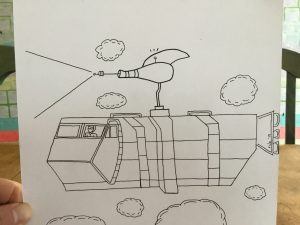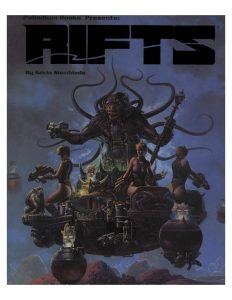by Max Sirak
“Once in while you get shown the light / In the strangest of places if you look at it right.”
The Grateful Dead sing that. It’s a line from Scarlet Begonias that goes through my mind in moments of pleasant surprise. And, as this essay is all about an instance of encountering wonder in an unlikely place, it seems a fitting place to start.
Forgetting how incredible it is to be alive and how good we have it is easy. We swim surrounded in a sea of marvels that previous generations couldn’t have imagined and might’ve called magic. Yet, because this is our everyday and we’re used to living this way, we hardly afford this truth a second thought.
Our near constant confrontation with news to the contrary also works to warp the wonder from our world view. Authoritarian regimes with Populist flares proffer. Climate change and our dependency on toxic energy destroys our planet. Humanitarian crises span our globe. And these are just the first three counterpoints that came to my mind.
I don’t mean to diminish the threats we face. Our current plights are real and important. But, so too is staying afloat.
Being bogged down and drowning in the morass of what’s wrong does no good. If anything it only serves to drain vital resources like our energy and agency. Which is why I’d like to invoke my Frostian right and diverge onto a road less traveled. One of enchantment.
The fact that you are even here to read this is remarkable. Sit back and think, just for a second, about all the hundreds of millions of choices and chances it took to make you.
Every single one of your ancestors not only had to survive in a more inhospitable world than we do, but also had to be in the exact right place at the right time to meet their mate. Next, this had to happen again and again, generation after generation. Then, you had to survive until today and at some point learn how to read, neither of which are guarantees.
Lord knows I wasn’t thinking along these lines when I stepped into my friend Bryan’s apartment a handful of Wednesdays ago. Quite the contrary. I was comfortably moored in the modern mood of meh and its darkness.
This is tale about discovering light.
Backstory
Every Wednesday night, for almost half my life now, I’ve gotten together with a group of friends to play table top role playing games (RPGs). These games are collaborative, cooperative, and imaginative affairs. They’re like giant Choose Your Own Adventure books that take place in fictional settings that you play through as a group.
There are two basic roles in any gaming group. One person is the storyteller. They are in charge of the world at large, its inhabitants, weather, and most everything, except for the other players.
Everyone else, who’s not the storyteller, is a player. Each player creates a character. Each character is tiny bastion of free-will in storyteller’s otherwise determined world.
Rifts To The Rescue
I remember getting the text Wednesday morning. It was Nick, our current storyteller, informing the group he’d be unavailable to play. When this happens, usually the remaining members show up and play a one-off. If a normal Wednesday night game is like a novel, a one-off is like the shortest of short stories. It’s a narrative designed to be wrapped up in a single night. Hence the name.
As I said, I was already feeling kind of blah. It was gray outside. The time had just changed and losing that hour of sunlight affected me the same way it did the day. Darkness increased.
About an hour later, Dave chimed into the group text. “Hey – I’ve got a game we can try if anyone wants to get together and play. It’s called Rifts. It’s an older game set in the dystopian future!” Given my mood and the matching mise-en-scene, I was in.
Walking into Bryan’s, I was immediately handed a book. This was unsurprising. Table top RPGs and tomes go hand-in-hand. These are where the rules for the game live.
Dave, our storyteller for the evening, set the scene:
It’s a dystopian future. There was a nuclear holocaust. Not only did it and the ensuing environmental catastrophes wipe out most of the world, it also tore open holes into other dimensions and times. So then a bunch of demons, dinosaurs, aliens, and robots showed up. This all happened a couple hundred years ago though. So society has slowly been rebuilding itself. Oh, and there’s magic.
With this in mind, I began flipping idly through the pages of the rulebook. There were many different characters I could choose to be. Everything from half-human robo-aliens with lasers guns to demon-devouring dragons with mighty magic were options.
I made my choice. It was now time to outfit my character with gear. Since the gist of most table top RPGs is to try and stay alive, kill all the bad guys, and save the day most players elect to spend their starting dollars on weapons and armor. You know, hero stuff.
There were plenty of items to choose. Laser guns, virboswords, tanks, Ironman-esque bodysuits, missile launchers, and all the other sci-fi accessories you’d expect to find in a setting like this. None of it really struck me though. It was all pretty basic.
Then I turned the page.
A Flicker Found
After all the weapons and armor, after all the futuristic bio-enhancements and vehicles, I got to the “Miscellaneous Equipment” section. It seemed almost an afterthought. Barely two pages, in a book of more than 250, devoted to non-combat items available to my character.
After tearing through those two pages of the book, I frantically flipped to the front. I had to find the publication date. I knew Rifts was old, Dave said as much in his text, but I didn’t know how old. I needed to find out.
The book was printed in 1991.
“Why,” you might ask, “does this matter?”
Because more than half of all the hi-tech, fancy communications gear that Kevin Siembieda and the crew at Palladium Books imagined might exist as “Miscellaneous Equipment” in the far future was, in the present, lazing in my pocket.
My phone could do more than the PC-3000 Hand-Held Computer, Portable Language Translator, Pocket Laser Distancer, PDD Pocket Digital Disc Audio Player and Recorder, PDD-V Pocket Digital Disc Audio and Video Player, Field Radio, and Hand Held Communicator combined. It also weighed less and was far cheaper.
In the game, each one of these devices was a separate piece of equipment. Together, they’d weigh over 18 lbs, be larger than a backpack, have 16 megabyte of storage, and cost more than a new motorcycle.
My phone? It weighs in at about a smooth four ounces, is three inches wide, six inches long, store two thousand times the data, and costs far less than a new bike.
We Live In The Future
I wasn’t expecting “to get shown the light” that night at Bryan’s. I figured it’d be like most Wednesdays. I’d gorge myself on snacks, crack some jokes, have some laughs, and be home by 11.
But it turns out, I was wrong.
Playing a 27 year-old make-believe game about the future caused me to stop and reflect. I, in real life, have better “Miscellaneous Equipment” than my Rifts character ever could have. Which means in some small way, today’s world surpasses the wildest dreams of people whose job it was to dream wildly about the future.
Talk about wonder-full.
***
Max is a ghostwriter. He’s sometimes on Twitter. And he gives a big heartfelt thanks to Rachel Bender for the original art.
